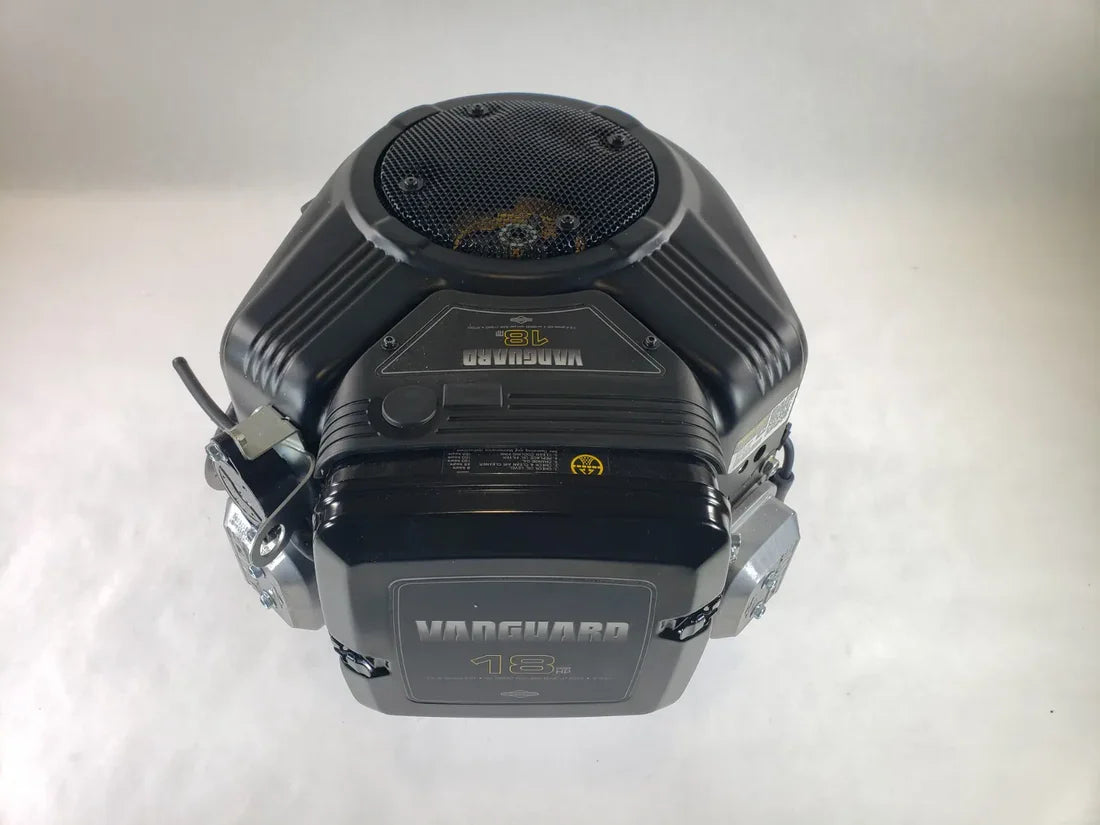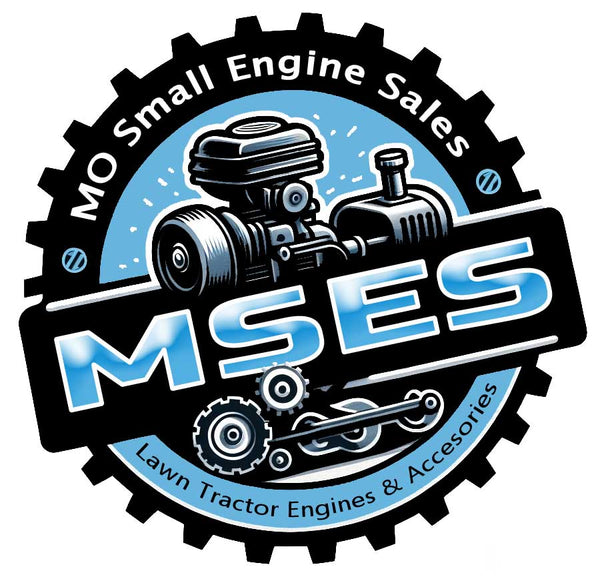
The Importance of Regular Small Engine Maintenance
Share
The Importance of Regular Small Engine Maintenance

As homeowners or landscapers, you depend on small engines to help maintain your property, keep your yard neat, and ensure your equipment works reliably when you need it most. Whether it’s your lawnmower, snow blower, or a trimmer, small engines are the backbone of outdoor maintenance tasks. But, like all machines, these engines require regular care to keep them running smoothly and efficiently.
Imagine the frustration of your lawnmower breaking down in the middle of a busy season or your snow blower refusing to start during a snowstorm. These situations can be easily avoided with regular small engine maintenance. By taking a proactive approach and performing regular preventive care, you can extend the life of your equipment, avoid costly repairs, and ensure your engines operate at peak performance.
In this blog, we’ll guide you through the importance of regular small engine maintenance and provide you with essential tips on keeping your equipment in top shape. Let’s dive into why and how you should take good care of your small engines!
Understanding Small Engines
Small engines are compact, powerful machines that provide the power needed for a wide variety of outdoor tasks. From lawnmowers and trimmers to snow blowers and leaf blowers, these engines are commonly found in most homes and landscaping businesses.
What Are Small Engines?
Small engines typically have a displacement of less than 25 horsepower and are used in various outdoor power equipment. The most common small engines are gasoline-powered, but you can also find electric-powered versions. They work by using a mixture of fuel and air that is ignited to produce power, which in turn powers the equipment.
Why Do Small Engines Need Maintenance?
Just like any engine, small engines require regular maintenance to ensure they continue working efficiently. Proper maintenance helps keep the engine parts clean, lubricated, and free from debris that could cause damage. Without regular care, small engines can develop problems such as overheating, poor fuel efficiency, or even complete failure.
Why Regular Small Engine Maintenance is Crucial
Taking care of your small engine through regular maintenance may seem like an extra task, but it is essential for a variety of reasons. Here are some of the top reasons why small engine maintenance is so important:
Prevents Unexpected Breakdowns
The last thing you want is for your engine to break down at an inconvenient time. Regular maintenance ensures that you can spot potential issues before they turn into serious problems. A small problem that is addressed early on can save you from costly repairs or the inconvenience of having to replace the engine entirely.
Improves Fuel Efficiency
Engines that are properly maintained run more efficiently, consuming less fuel. This means that your small engine will provide better performance, while also saving you money on fuel over time. For instance, replacing a dirty air filter or changing the oil regularly can improve engine efficiency and reduce fuel consumption.
Enhances Engine Performance
When your small engine is well-maintained, it runs smoother, quieter, and more efficiently. This improves its overall performance, whether you're mowing the lawn or clearing snow from the driveway. A well-maintained engine will also start more easily and run more reliably.
Extends the Life of Your Equipment
Routine maintenance helps prevent the wear and tear that comes with prolonged use. By regularly changing the oil, cleaning the air filter, and checking spark plugs, you help extend the life of your engine. This means fewer replacements and more years of reliable service from your equipment.
Reduces Repair Costs
Preventive maintenance can save you money in the long run. By taking small steps to maintain your small engine, you can avoid expensive repair bills. Catching minor issues early on is far more cost-effective than dealing with major repairs later.
Helps Maintain Safety Standards
Proper maintenance also ensures that your small engine is safe to use. Clogged filters, dirty fuel systems, or faulty spark plugs can cause the engine to overheat or malfunction. Regular maintenance ensures that all safety features of the engine, such as the cooling system and ignition, are working as they should.
Essential Small Engine Maintenance Tips for Homeowners and Landscapers
To keep your small engine in top shape, there are a few key maintenance tasks that should be done regularly. Here’s a guide to the most important small engine maintenance tips for homeowners and landscapers:
Changing the Oil
Changing the oil is one of the most crucial maintenance tasks for any small engine. Over time, oil breaks down and becomes contaminated with dirt and debris, which can cause friction and damage engine parts. Regularly changing the oil ensures that your engine stays properly lubricated and runs smoothly.
- When to change the oil: Check the manufacturer’s recommendation, but generally, you should change the oil every 25 to 50 hours of operation or at least once per season.
- How to change the oil: Drain the old oil, replace the oil filter (if applicable), and add fresh oil to the engine. Make sure to use the right type of oil recommended by the manufacturer.
Cleaning or Replacing the Air Filter
The air filter plays a critical role in maintaining the performance of your small engine. It prevents dirt, dust, and debris from entering the engine, which can cause damage over time. A clogged or dirty air filter can reduce engine performance and fuel efficiency.
- When to clean or replace the air filter: Clean or replace the air filter at least once per season, or more often if you use the engine in dusty conditions.
- How to clean the air filter: Remove the filter, tap it gently to remove dirt, and wash it with soap and water. Let it dry completely before reinstalling it.
Spark Plug Maintenance
The spark plug is responsible for igniting the fuel mixture inside the engine. Over time, the spark plug can become worn out, dirty, or covered with carbon deposits, which can affect engine performance. Checking and maintaining the spark plug is an easy way to ensure smooth operation.
- When to check the spark plug: Inspect the spark plug at least once a season and replace it if it shows signs of wear or corrosion.
- How to maintain the spark plug: Remove the spark plug, clean it with a wire brush, and check the gap. If the spark plug is worn or damaged, replace it with a new one.
Fuel System Maintenance
The fuel system, including the fuel lines, carburetor, and fuel tank, is crucial for keeping your engine running smoothly. Stale fuel, clogged fuel lines, or a dirty carburetor can cause the engine to run poorly or not start at all.
- When to clean the fuel system: Clean the fuel system before storing the engine for the season, and use fresh fuel when starting the engine.
- How to maintain the fuel system: Drain old fuel before storage, replace fuel lines if necessary, and clean the carburetor to remove any debris.
Sharpening Blades
For lawnmowers and other cutting equipment, sharp blades are essential for optimal performance. Dull blades can strain the engine, reduce cutting efficiency, and leave your lawn looking uneven.
- When to sharpen blades: Check the blades regularly and sharpen them if you notice the grass being torn or if the mower is harder to push than usual.
- How to sharpen blades: Remove the blades from the mower and use a sharpening tool to restore their edge. Make sure to balance the blades after sharpening to prevent vibration.
Tire and Belt Care
Tires and belts are often overlooked during maintenance, but they are essential for keeping your small engine equipment running smoothly.
- Tires: Check the tire pressure regularly and inflate them to the recommended level to ensure smooth operation and reduce strain on the engine.
- Belts: Inspect belts for wear and tear. Replace any worn or frayed belts to avoid breaking down during use.
Seasonal Small Engine Maintenance
Different seasons bring different challenges to small engine equipment. Here’s how to prepare your equipment for each season:
Spring: Preparing for Lawn Care
- Check and change the oil, clean or replace the air filter, and sharpen the blades.
- Replace any worn-out spark plugs and check the fuel system.
- Perform a general check-up to ensure the mower is ready for the season.
Summer: Routine Check-ups
- Keep up with regular maintenance like changing the oil and cleaning the air filter.
- Check the spark plug and fuel system regularly to ensure everything is running smoothly.
Fall: Winterizing Your Small Engine
- Drain the fuel tank to prevent old fuel from clogging the fuel system.
- Change the oil and clean the air filter before storing the engine for the winter.
- If applicable, store the equipment in a dry, cool place to prevent damage.
Winter: Maintaining Idle Equipment
- Even if the equipment isn’t in use, check on it occasionally to ensure it’s in good condition and hasn’t developed any issues.
- If needed, perform minor maintenance tasks like cleaning the spark plug or checking the oil levels.
Common Small Engine Problems and How to Avoid Them
Hard Starting or Failure to Start
This could be due to old fuel, a clogged fuel system, or a dirty spark plug. Regular maintenance can prevent this from happening.
Excessive Smoke or Rough Idling
If your engine is producing excessive smoke, it could be an indication of too much oil or a dirty air filter. Make sure to check the oil levels and clean the air filter regularly.
Overheating
Overheating is usually caused by a clogged air filter, low oil levels, or an obstructed cooling system. Ensure that all parts are clean and that the oil is at the right level.
Conclusion
Regular small engine maintenance is key to ensuring that your equipment runs smoothly and lasts for many years. By following the maintenance tips shared in this blog, you’ll improve your engine’s performance, reduce repair costs, and enjoy peace of mind knowing your equipment is ready to work when you need it.
For all your small engine parts, tools, and maintenance needs, visit MO Small Engine Sales—your trusted source for high-quality small engine supplies.
